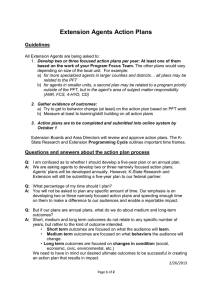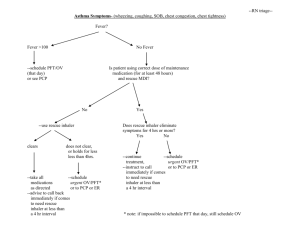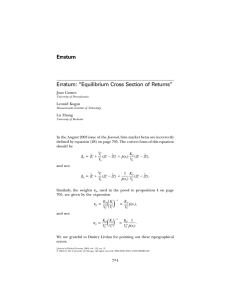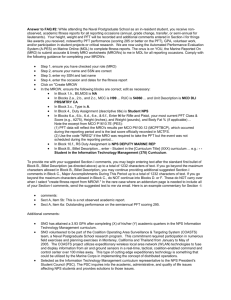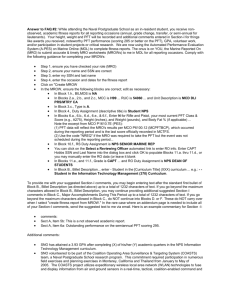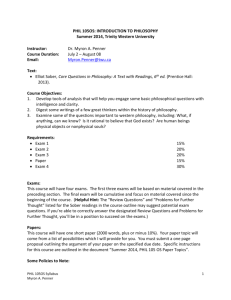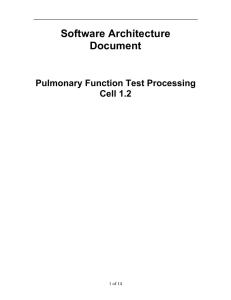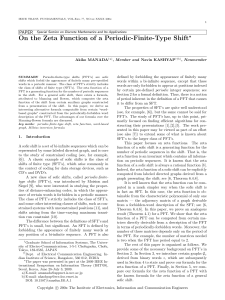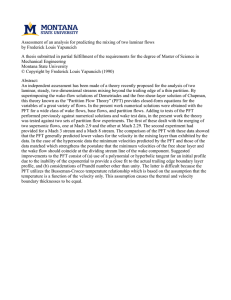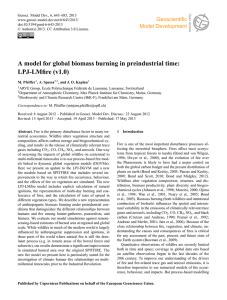Best Practices for PFT Communicators from Kansas State University
advertisement
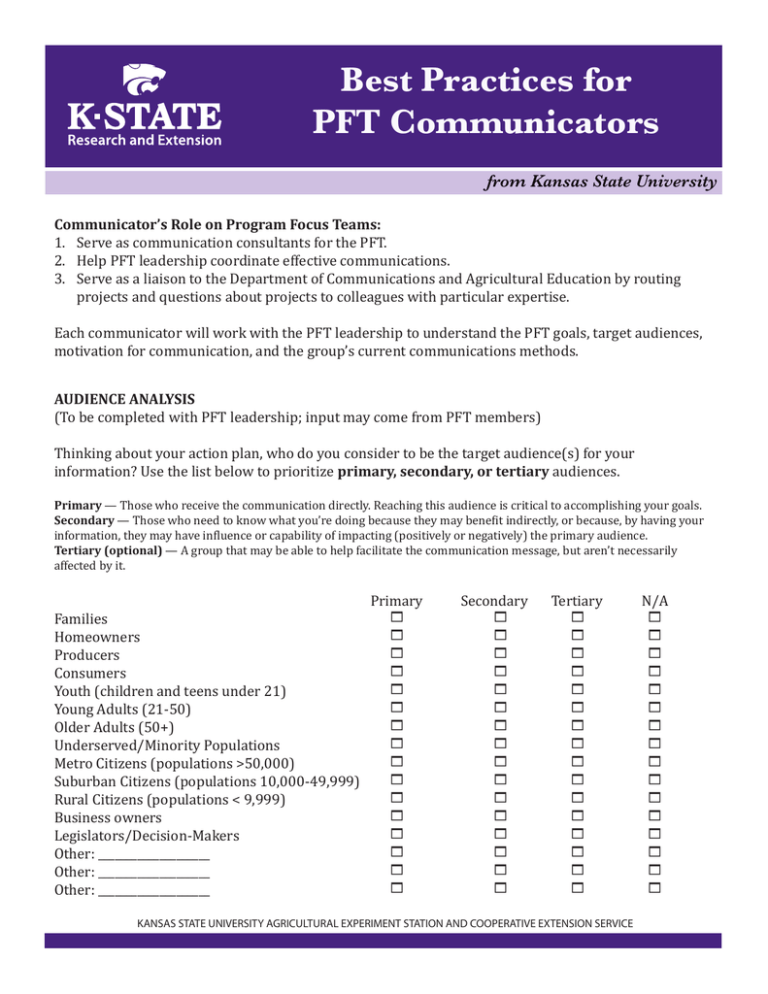
Best Practices for PFT Communicators from Kansas State University Communicator’s Role on Program Focus Teams: 1. Serve as communication consultants for the PFT. 2. Help PFT leadership coordinate effective communications. 3. Serve as a liaison to the Department of Communications and Agricultural Education by routing projects and questions about projects to colleagues with particular expertise. Each communicator will work with the PFT leadership to understand the PFT goals, target audiences, motivation for communication, and the group’s current communications methods. AUDIENCE ANALYSIS (To be completed with PFT leadership; input may come from PFT members) Thinking about your action plan, who do you consider to be the target audience(s) for your information? Use the list below to prioritize primary, secondary, or tertiary audiences. Primary — Those who receive the communication directly. Reaching this audience is critical to accomplishing your goals. Secondary — Those who need to know what you’re doing because they may benefit indirectly, or because, by having your information, they may have influence or capability of impacting (positively or negatively) the primary audience. Tertiary (optional) — A group that may be able to help facilitate the communication message, but aren’t necessarily affected by it. PrimarySecondary TertiaryN/A Families 1 1 1 1 Homeowners 1 1 1 1 Producers 1 1 1 1 Consumers 1 1 1 1 Youth (children and teens under 21) 1 1 1 1 Young Adults (21-50) 1 1 1 1 Older Adults (50+) 1 1 1 1 Underserved/Minority Populations 1 1 1 1 Metro Citizens (populations >50,000) 1 1 1 1 Suburban Citizens (populations 10,000-49,999) 1 1 1 1 Rural Citizens (populations < 9,999) 1 1 1 1 Business owners 1 1 1 1 Legislators/Decision-Makers 1 1 1 1 Other: ____________________ 1 1 1 1 Other: ____________________ 1 1 1 1 Other: ____________________ 1 1 1 1 KANSAS STATE UNIVERSITY AGRICULTURAL EXPERIMENT STATION AND COOPERATIVE EXTENSION SERVICE Best Practices for PFT Communicators page 2 of 2 PURPOSE OF COMMUNICATIONS What are the primary reasons for communicating your group’s message(s)? Indicate a priority for each category listed. High — This is a primary reason for communicating. You will focus communications to achieve success in this area. Medium — Some evidence of success already exists in this area, but additional work must be done. Low — This area seems to be well-established, but communications must continue to support this aspect. HighMedium LowN/A Awareness (of service) 1 1 1 1 Awareness (of added value/benefit) 1 1 1 1 Education (for behavior change) 1 1 1 1 Call to Action: Use our services 1 1 1 1 Legislative support (funding) 1 1 1 1 Local community support 1 1 1 1 Other: ____________________ 1 1 1 1 Other: ____________________ 1 1 1 1 Other: ____________________ 1 1 1 1 Other: ____________________ 1 1 1 1 WHAT IS BEING DONE CURRENTLY? Please list the communications tactics the PFT is already doing. Include notes about successes, challenges, or other information that might help evaluate the usefulness of the tactic. Are there additional tactics that the group has considered for the future? (Please list.) KANSAS STATE UNIVERSITY AGRICULTURAL EXPERIMENT STATION AND COOPERATIVE EXTENSION SERVICE
